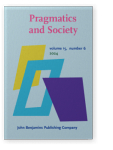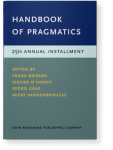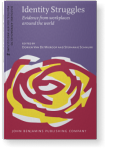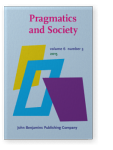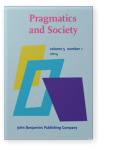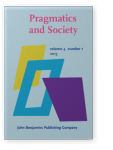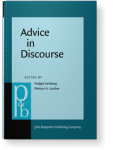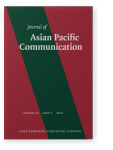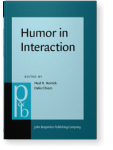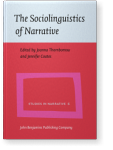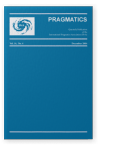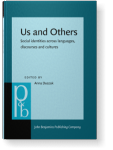Meredith Marra
List of John Benjamins publications for which Meredith Marra plays a role.
Journal
2022 Workplace interaction Handbook of Pragmatics: 25th Annual Installment, Brisard, Frank, Sigurd D’hondt, Pedro Gras and Mieke Vandenbroucke (eds.), pp. 177–198 | Chapter
2017 Chapter 7. You’re a proper tradesman mate: Identity struggles and workplace transitions in New Zealand Identity Struggles: Evidence from workplaces around the world, Van De Mieroop, Dorien and Stephanie Schnurr (eds.), pp. 127–146 | Chapter
Using a broad and inclusive definition of what counts as a professional, this paper explores the struggle of developing an appropriate identity as part of the transition from legitimate outsider to workplace insider. Drawing on naturally-occurring data from two contrasting… read more
2015 Doing power and negotiating through disagreement in public meetings Pragmatics and Society 6:3, pp. 444–464 | Article
Power in meetings may be enacted in many ways, ranging from democratic and collaborative through to authoritative and didactic, with the exact positioning on this continuum typically under the control of the chair. By contrast with the focus of most previous research on the behaviour of… read more
2014 Review of Dynel (2011): The Pragmatics of Humour across Discourse Domains Pragmatics and Society 5:1, pp. 151–155 | Review
2013 How permeable is the formal-informal boundary at work? An ethnographic account of the role of food in workplace discourse Culinary Linguistics: The chef's special, Gerhardt, Cornelia, Maximiliane Frobenius and Susanne Ley (eds.), pp. 191–210 | Article
Talk about food at work is typically overlooked as peripheral, just like other relationally-oriented discourse (e.g. small talk and humor). Drawing on a data set of workplace interactions recorded in formal and informal settings, we demonstrate how food talk erodes and troubles formality boundaries. read more
2013 Doing listenership: One aspect of sociopragmatic competence at work Pragmatics and Society 4:1, pp. 26–53 | Article
The skills involved in contributing competently in workplace interaction include enacting attentive listenership and providing appropriate feedback to the talk of others. These sociopragmatic skills are often overlooked, and when non-native-like listener feedback does attract attention, cultural… read more
2012 Chapter 7. Mentoring migrants: Facilitating the transition to the New Zealand workplace Advice in Discourse, Limberg, Holger and Miriam A. Locher (eds.), pp. 145–166 | Chapter
This chapter focuses on face-to-face advice provided to two Chinese male migrants to facilitate the transition from an educational to a workplace context. The migrants are completing a course aimed at helping them develop sociopragmatic competence in New Zealand English and as part of this course… read more
2010 Kia ora matua: Humour and the Maori language in the workplace Journal of Asian Pacific Communication 20:1, pp. 46–68 | Article
Many aspects of the use of the Maori language are highly controversial in New Zealand, and humour is one way in which the sensitivities relating to the language can be negotiated in everyday workplace contexts. This article examines the use of the Maori language by Maori and Pakeha participants… read more
2009 Boundary-marking humor: Institutional, gender and ethnic demarcation in the workplace Humor in Interaction, Norrick, Neal R. and Delia Chiaro (eds.), pp. 125–140 | Article
Drawing on recorded workplace meetings of Maori and Pakeha women in one New Zealand government department, this paper illustrates some of the complexities of boundary-marking humor. In particular, we analyse examples where the humor illuminates some of the tensions experienced by less powerful… read more
2005 Narrative and the construction of professional identity in the workplace The Sociolinguistics of Narrative, Thornborrow, Joanna and Jennifer Coates (eds.), pp. 193–213 | Article
2004 Leadership and managing conflict in meetings Pragmatics 14:4, pp. 439–462 | Article
There is extensive literature describing the characteristics of a good leader in the area of organisational communication and business management. However, the research tends to be based on secondary, survey or reported data, typically interviews and questionnaires. Moreover, the predominant image… read more
2002 Humour as a discursive boundary marker in social interaction Us and Others: Social identities across languages, discourses and cultures, Duszak, Anna † (ed.), pp. 377–400 | Article
